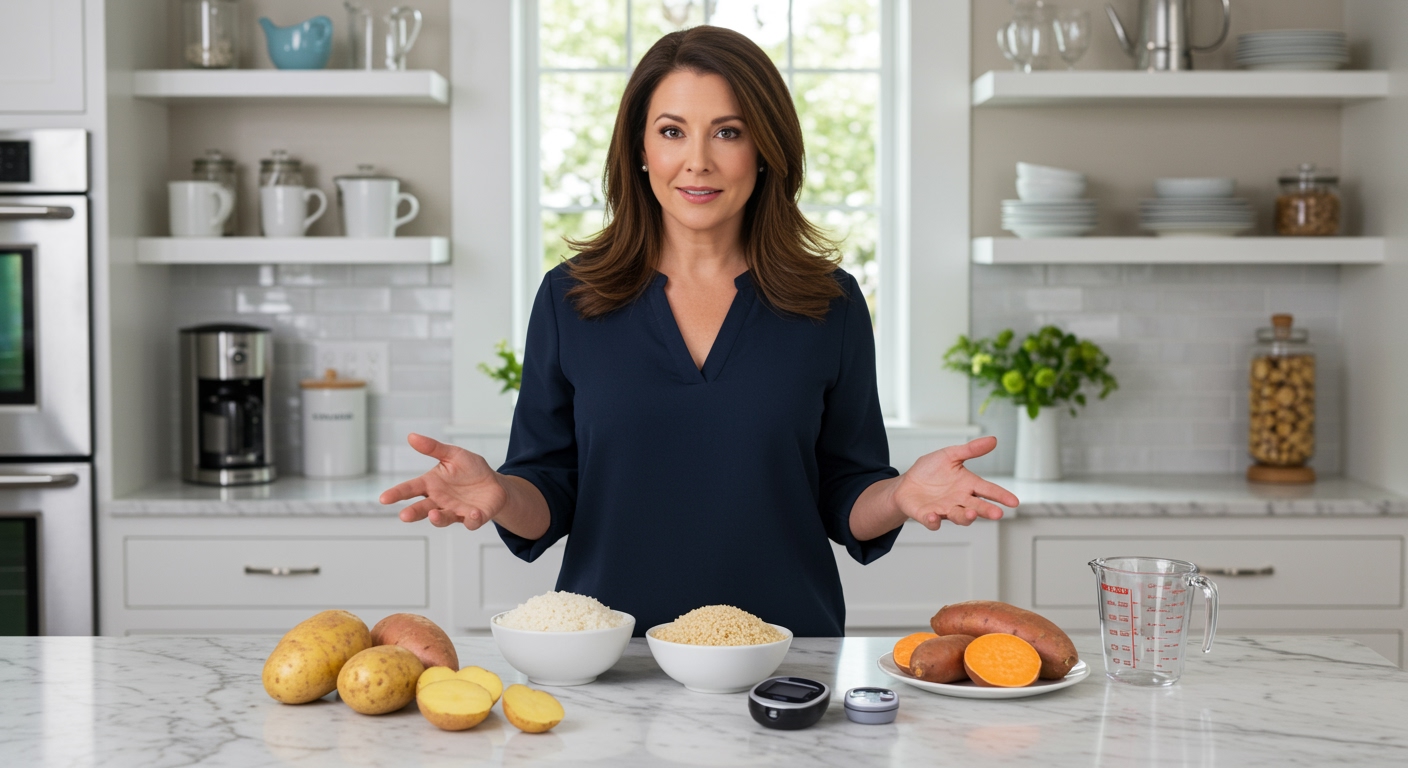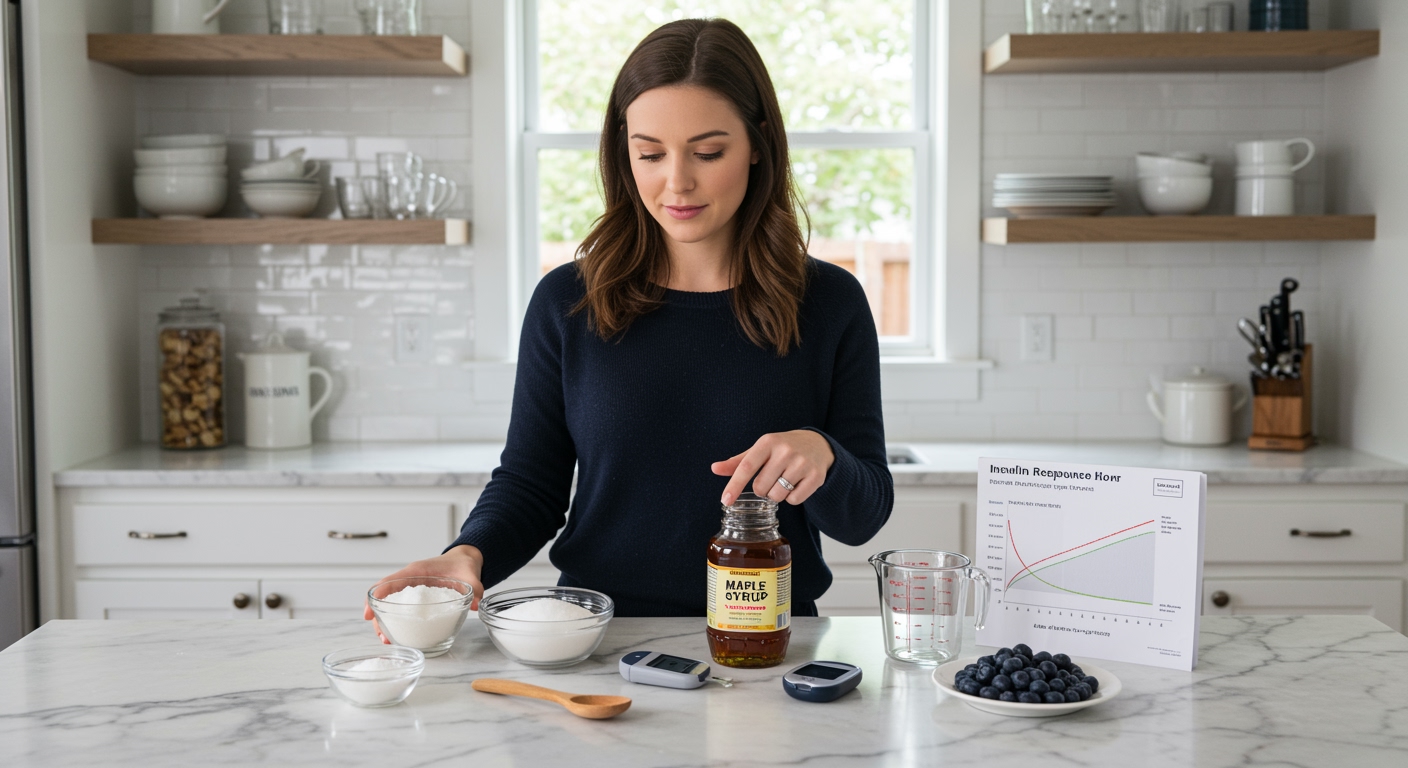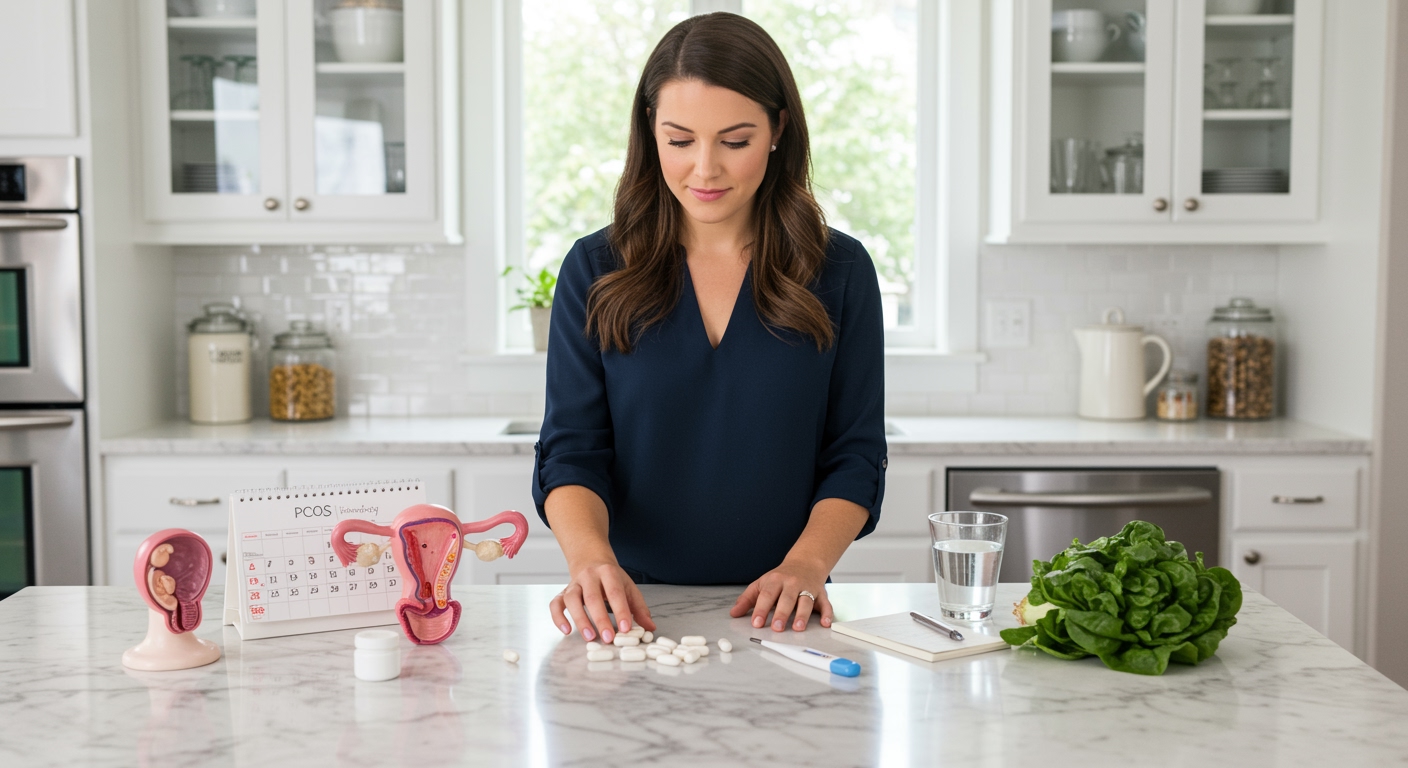✪ Key Takeaway: PCOS women can safely eat potatoes and rice when choosing the right types, proper portions, and smart timing strategies.
Introduction
You stare at that innocent potato on your kitchen counter and wonder if it will sabotage your PCOS management efforts.
Many women with PCOS receive conflicting advice about whether potatoes and rice belong in their diet, leaving them confused about these common staple foods.
Hi, I’m Abdur, your nutrition coach and today I’m going to explain exactly how PCOS women can safely include potatoes and rice in their meal plans without compromising their health goals.
Why Do PCOS Women Fear Potatoes and Rice?
Most PCOS women avoid potatoes and rice because they fear these foods will spike their blood sugar levels dangerously high.
This fear stems from the fact that PCOS often comes with insulin resistance, making the body struggle to process carbohydrates effectively.
When insulin resistance occurs, your cells become less responsive to insulin, causing blood sugar to remain elevated longer than normal.
High blood sugar triggers more insulin production, creating a vicious cycle that can worsen PCOS symptoms like weight gain and irregular periods.
However, completely eliminating these foods might not be the best strategy because it can lead to nutrient deficiencies and unsustainable eating patterns.
✪ Fact: Studies show that 65-70% of women with PCOS have insulin resistance, but this doesn’t mean all carbohydrates are off-limits.
Which Types of Potatoes Are PCOS-Friendly?
Sweet potatoes rank as the best choice for PCOS women because they have a lower glycemic index than regular white potatoes.
The glycemic index measures how quickly foods raise blood sugar, with sweet potatoes scoring around 54 compared to russet potatoes at 78.
Sweet potatoes also contain more fiber and antioxidants, which help slow down sugar absorption and reduce inflammation.
Red potatoes and new potatoes offer better options than russet potatoes because they contain more fiber and have slightly lower glycemic impact.
Cooking method matters tremendously – boiled potatoes have a lower glycemic index than baked or fried versions.
Cooling cooked potatoes in the refrigerator overnight creates resistant starch, which acts more like fiber and causes smaller blood sugar spikes.
✪ Pro Tip: Eat potato salad made with cooled potatoes instead of hot baked potatoes to minimize blood sugar impact.
Is Brown Rice Really Better Than White Rice for PCOS?
Brown rice contains significantly more fiber than white rice, which helps slow down glucose absorption and prevents rapid blood sugar spikes.
The fiber in brown rice also promotes better satiety, helping you feel full longer and potentially reducing overall calorie intake.
White rice has been stripped of its fiber-rich bran layer, making it digest faster and cause more dramatic blood sugar fluctuations.
However, portion size matters more than rice type – a small serving of white rice with protein and vegetables can be manageable for many PCOS women.
Wild rice and black rice offer even better options because they contain higher levels of antioxidants and fiber than both brown and white varieties.
Basmati rice, whether white or brown, has a lower glycemic index than other rice varieties due to its unique starch composition.
✪ Note: Cooling cooked rice overnight and reheating it increases resistant starch content, making it more PCOS-friendly.
What Are the Safe Portion Sizes and Timing Strategies?
A safe portion of potatoes for PCOS women equals about half a medium potato or roughly the size of your closed fist.
For rice, stick to one-third cup of cooked rice, which provides adequate carbohydrates without overwhelming your insulin response.
Always pair these carbohydrates with protein and healthy fats to slow down digestion and minimize blood sugar spikes.
Eating potatoes or rice earlier in the day allows your body more time to process the carbohydrates and use them for energy rather than storage.
Post-workout timing works exceptionally well because your muscles are primed to absorb glucose efficiently after physical activity.
Never eat potatoes or rice alone – combine them with vegetables, lean protein, and a small amount of healthy fat for optimal blood sugar control.
✪ Pro Tip: Add vinegar or lemon juice to potato and rice dishes to further reduce their glycemic impact naturally.
How Can You Monitor Your Individual Response?
Every PCOS woman responds differently to carbohydrates, making personal monitoring essential for determining your individual tolerance levels.
Keep a detailed food diary that tracks what you eat, portion sizes, and how you feel 1-2 hours after meals.
Pay attention to symptoms like increased hunger, fatigue, mood swings, or cravings after eating potatoes or rice.
Consider using a glucose meter to check your blood sugar before eating and 1-2 hours afterward to see your personal response.
If your blood sugar rises more than 40-50 points above baseline, you may need to reduce portions or choose different preparation methods.
Work with a healthcare provider or registered dietitian who understands PCOS to develop a personalized approach that works for your specific needs.
✪ Fact: Blood sugar responses to the same food can vary by up to 50% between different individuals with PCOS.
The Bottom Line
PCOS women can safely include potatoes and rice in their diets by choosing the right types, controlling portions, and timing their intake strategically.
Smart food choices beat complete food elimination every time because sustainability leads to long-term success.
I would love to hear about your experiences with including potatoes and rice in your PCOS management plan, so please share your questions, success stories, or challenges in the comments below.
References
At NutritionCrown, we use quality and credible sources to ensure our content is accurate and trustworthy. Below are the sources referenced in creating this article:
- Healthline: PCOS Diet: Foods to Eat and Avoid
- Medical News Today: PCOS Diet: What to Eat and What to Avoid
- Mass General Brigham: Nutrition for PCOS
- Marion Gluck Clinic: Foods to Eat with PCOS





